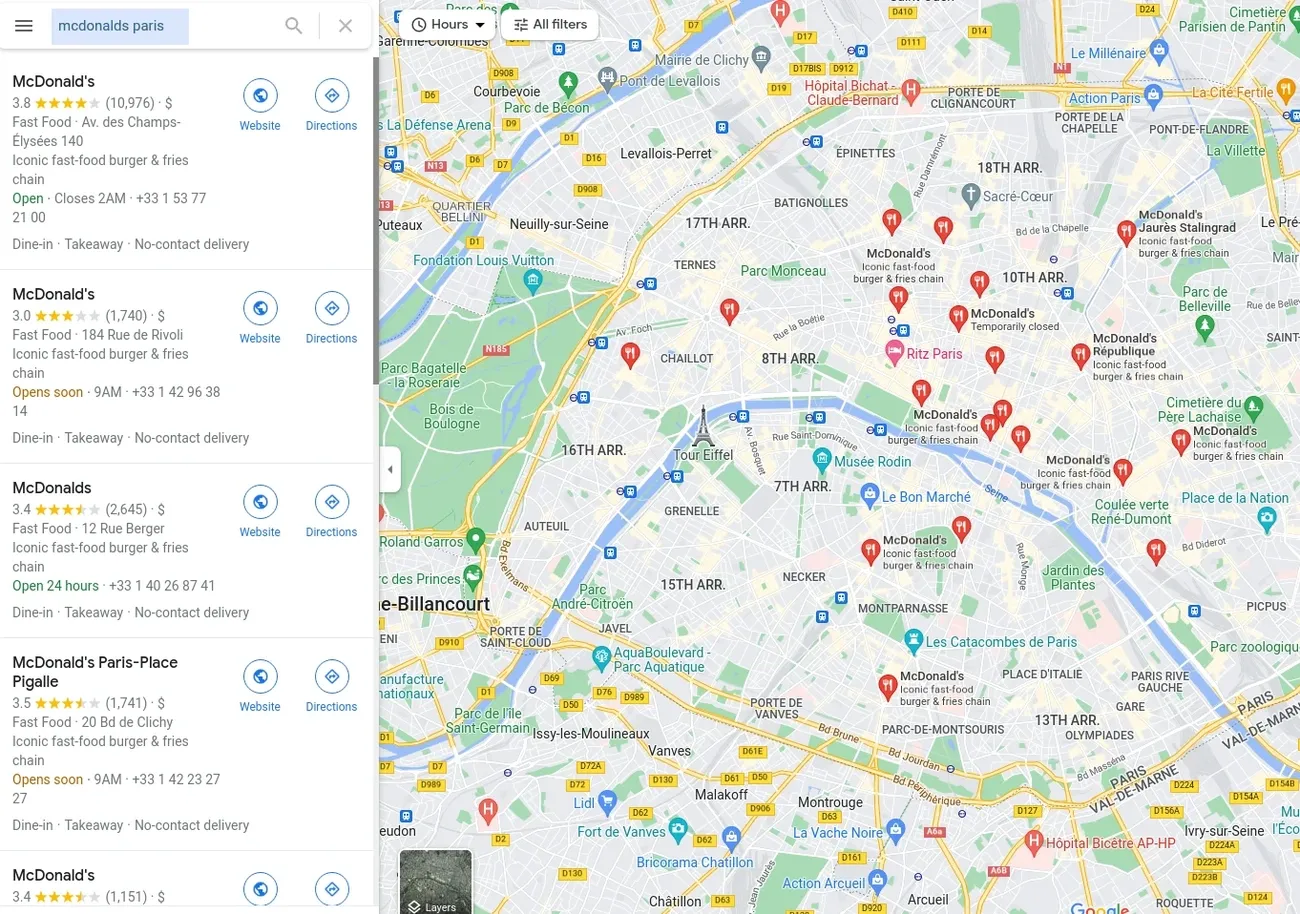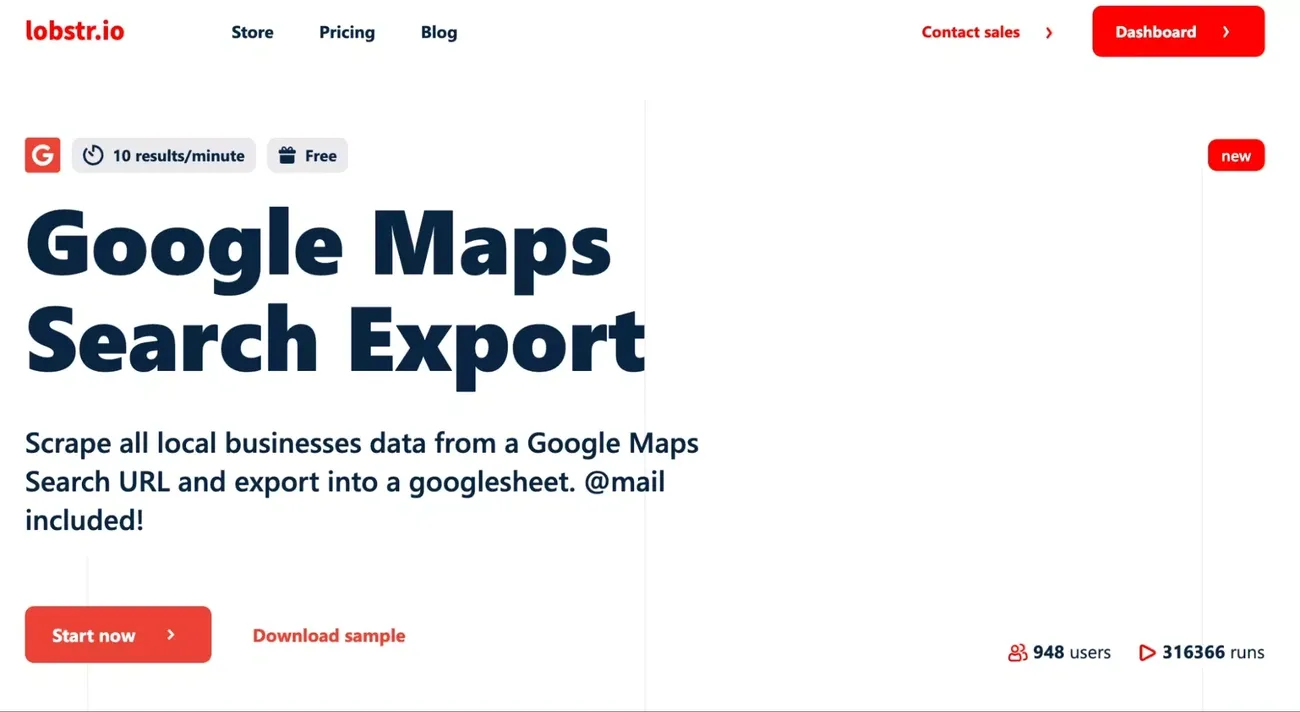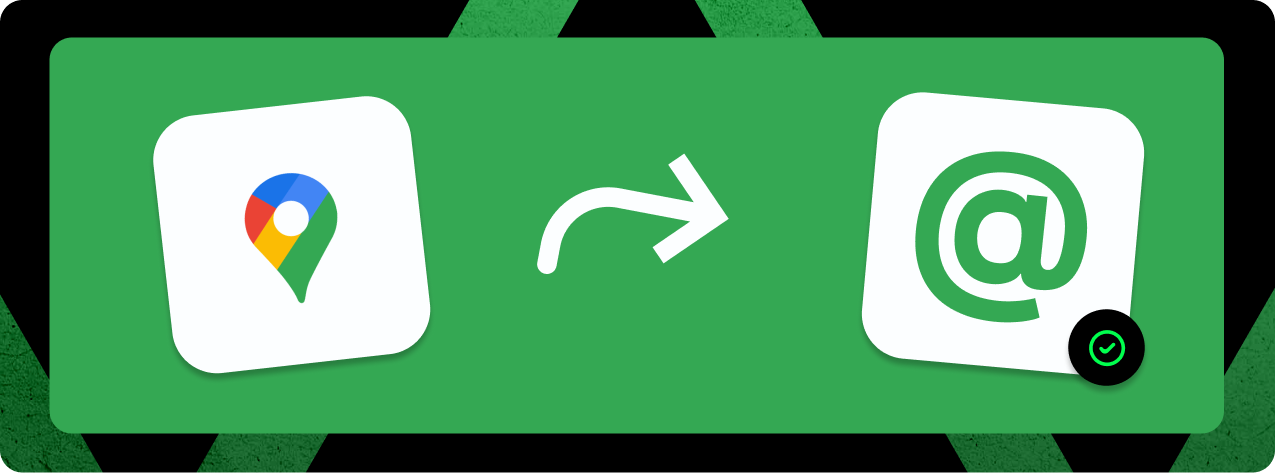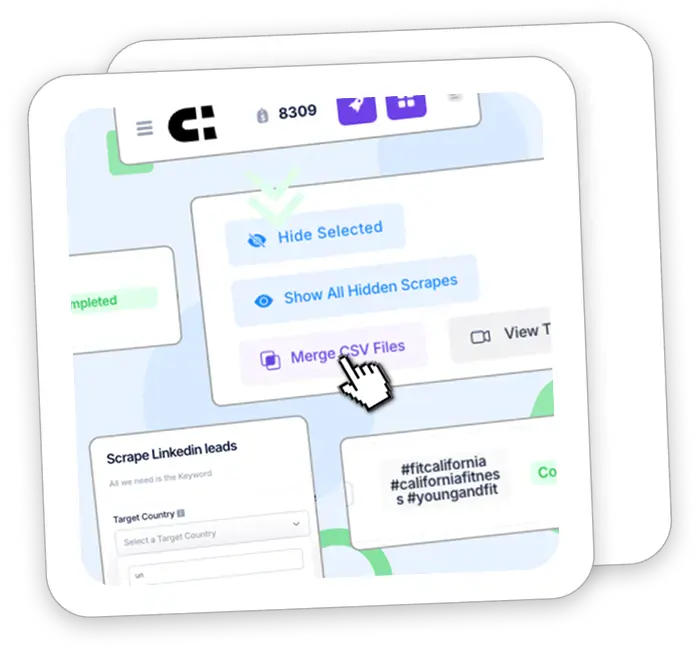Is It Legal to Scrape Google Maps? What You Should Know
Is it legal to scrape Google Maps data? It depends who you ask. Google’s terms of service clearly prohibit scraping, but U.S. courts have ruled that collecting publicly available data—like business listings on Google Maps—can be perfectly legal under certain conditions. This creates a gray area where legality and platform policy don’t always align.
The numbers tell the story: Google Maps mobile app has over 10 billion downloads and more than a billion monthly users, making it one of the most valuable business data sources on the planet. But Google’s terms explicitly ban scraping, extracting, or exporting any of this data. Meanwhile, the 2019 LinkedIn vs. HiQ Labs ruling established that scraping public data doesn’t break the law—a decision the Ninth Circuit reaffirmed in 2022.
This creates a practical problem for businesses, researchers, and developers who need location data. You’re stuck between platform policies that say “no” and legal precedents that say “yes.”
👉 In this 2025 guide, you’ll learn: What the law actually says about Google Maps scraping, which court cases matter for your data collection strategy, and how to stay compliant with data protection regulations like GDPR and CCPA. Whether you’re building business intelligence dashboards, conducting market research, or developing applications, understanding these legal boundaries is crucial for making smart decisions about your data sources.
Bottom line: the legal landscape around Google Maps scraping isn’t as black and white as Google’s terms might suggest.
Google Maps Terms of Service and Scraping Restrictions
Google’s platform policies around data extraction aren’t suggestions—they’re hard rules that can shut down your operations fast. If you’re planning to scrape Google Maps data, these restrictions will directly impact your strategy.
Understanding what Google actually prohibits can save you from account suspensions, IP blocks, and the headache of rebuilding your data collection infrastructure from scratch.
Does Google allow scraping?
Google says no across all their services. The company’s Terms of Service expressly prohibit using “any automated means (such as harvesting bots, robots, spiders, or scrapers)” to access or use their services. This blanket policy protects Google’s business model, server resources, data quality, and competitive position in the market.
Here’s what matters: violating these terms is a contract issue, not a criminal one. You’re not breaking the law—you’re breaking Google’s rules. There’s a big difference.
If Google catches you scraping, expect:
- Account suspension
- Temporary IP blocking
- Loss of access to Google services
These are business penalties, not legal ones. Google enforces through technical roadblocks rather than lawyers. They’ll block your IP or suspend your account long before they’ll sue you.
The reality is straightforward: Google doesn’t want you scraping because it undermines their paid APIs and strains their infrastructure. But “not wanting” and “illegal” are two very different things.
Does Google Maps allow scraping?
Absolutely not. Google Maps takes a harder line against data extraction than most of Google’s other services. Section 3.2.3 of Google Maps Platform Terms makes it crystal clear: customers “will not export, extract, or otherwise scrape Google Maps Content for use outside the Services”.
The specific restrictions cover pretty much everything you’d want to do with the data:
- Pre-fetching, indexing, storing, resharing, or rehosting Google Maps Content
- Bulk downloading map tiles, Street View images, geocodes, directions, or other data
- Copying and saving business names, addresses, or user reviews
- Using Google Maps Content with text-to-speech services
Google does offer a legitimate path through its Places API for businesses that need location data. The catch? You get limited free quotas, and scaling up requires paid subscriptions that can get expensive fast.
This puts businesses in a tough spot. You need the data, but Google’s official route comes with usage caps and costs that might not work for your budget or use case. Meanwhile, the data you’re after sits right there in the browser, publicly visible to anyone who visits the site.
That’s where the legal distinction becomes important—what Google prohibits through their terms and what’s actually illegal under U.S. law are two different things.
What is not allowed on Google Maps?
Google Maps restrictions go way beyond scraping. The platform has strict rules about what kind of content and activities are permitted on their service.
Prohibited locations include:
- Businesses temporarily closed for more than two weeks
- Illegal business operations
- Seasonal businesses without permanent addresses
- One-time events without fixed locations
You also can’t add:
- Non-permanent listings like pop-up shops or temporary events
- Entities without physical presence (call centers, online-only businesses)
- Private premises (celebrity homes, private residences)
- Non-public sensitive locations (military bases, nuclear facilities)
Commercial restrictions are equally strict:
- Redistributing or selling any Google Maps content
- Creating new products based on Google Maps data
- Mass downloading map tiles, images, or business data
- Using map information to build competing mapping services
These rules exist to protect Google’s data integrity and business model. For businesses looking to extract location data, understanding these broader restrictions helps explain why Google takes such a hard stance against scraping in the first place.
Google Maps terms of service scraping
Google hammers home their anti-scraping stance throughout their documentation. The phrase “Google Maps Content cannot be exported, extracted, or otherwise scraped for usage outside the Services” shows up in multiple sections, making it clear this isn’t just boilerplate legal text.
Google’s opposition isn’t just legal posturing—it’s pure business strategy. The company monetizes Maps data through their Places API, so allowing free scraping would directly undercut this revenue stream. Plus, massive automated requests can strain their infrastructure and slow down the platform for regular users.
But here’s where it gets interesting: even academic researchers acknowledge the legal reality. One technical paper notes that scraping publicly available traffic data “is certainly legal” through standard web scraping methods. The same researchers clarify that while the scraping itself is legal, “using these techniques to circumvent a pay-wall is almost certainly a violation of Google’s terms of service”.
This creates a practical distinction many businesses miss. The data extraction isn’t the legal problem—it’s how you access it and what Google can do about it through their platform controls.
For teams that want to play by Google’s rules, the Places API offers legitimate access to Maps data. You’ll need to display Google’s logo and follow their attribution guidelines when using API data, but this route eliminates any terms of service concerns. The trade-off? Limited free quotas and subscription costs that scale with usage.
Most businesses hit a decision point: pay for official API access or accept the technical risks that come with scraping public data that courts say you can legally collect.
Legal Status of Scraping Public Data from Google Maps
Google’s terms of service aren’t the same thing as the law. This distinction matters more than most data professionals realize. Courts have been surprisingly clear about what’s actually legal when it comes to scraping public information.
Is it legal to scrape data from google maps?
Short answer: Yes, but it’s complicated.
While Google’s terms of service explicitly ban scraping, this represents a contractual agreement rather than law. Breaking Google’s rules isn’t the same as breaking the law.
U.S. legal precedent consistently supports scraping publicly accessible data. This creates an important gap: violating Google’s terms may result in account suspension or IP blocks, but it doesn’t necessarily constitute illegal activity.
Think of it like a restaurant prohibiting purple shirts—wearing one might get you kicked out, but it’s not a crime. Google can prohibit data extraction through platform policies without making the practice illegal under actual law.
Can you scrape google maps?
Technically? Absolutely. The data is sitting right there in your browser.
Studies show that over 78% of North American corporations consider location data essential for their growth plans. Many businesses scrape Google Maps despite the terms restrictions, and they face technical barriers, not legal consequences.
What you’ll actually encounter:
- IP bans (typically temporary)
- Account suspensions
- CAPTCHAs and verification challenges
These represent Google’s primary enforcement, not courtroom battles. Interestingly, Google allows promotion of scraping-related services on Google Ads, indirectly acknowledging that data scraping isn’t classified as illegal activity.
Is scraping a crime?
No. Web scraping itself isn’t inherently criminal. According to U.S. laws, extracting publicly available online data doesn’t violate any law per se. What matters is how data is collected and used.
The legal framework considers:
- Computer Fraud and Abuse Act (CFAA) – Courts debate whether web scraping constitutes “unauthorized access”
- Copyright laws – Factual information like business names has different copyright status by jurisdiction
- Data protection regulations – GDPR and CCPA govern how personal information can be collected
The Van Buren v. United States case clarified that Terms of Service violations alone don’t constitute computer crimes. Most legal issues arise not from scraping itself, but from how the data gets used afterward.
Bottom line: Google’s scraping prohibition represents business policy, not law. While violating their terms might trigger technical restrictions, U.S. courts consistently uphold the legality of responsibly scraping publicly available data.
Key Legal Precedents Supporting Scraping Legality
Three landmark court cases have fundamentally changed the scraping landscape. These rulings cut through the confusion between platform policies and actual law, giving scrapers solid legal ground to stand on.
LinkedIn vs HiQ Labs: Ninth Circuit Ruling
The hiQ Labs v. LinkedIn decision remains the most important scraping case on the books. When the Ninth Circuit ruled in 2019 that scraping publicly available data isn’t unlawful, it established three critical principles:
- Public websites can’t have access limitations by definition
- You can’t withdraw authorization that was never required
- The CFAA’s “without authorization” provision doesn’t apply to public data
Here’s what makes this ruling bulletproof: after the Supreme Court’s Van Buren decision, LinkedIn tried to challenge it again. In April 2022, the Ninth Circuit reaffirmed its original position. When a court doubles down on a ruling like this, it carries serious weight.
The court’s reasoning hits directly at platforms trying to control public data. They warned against letting companies like LinkedIn have “free rein to decide, on any basis, who can collect and use” publicly available information, citing risks of “information monopolies that would disserve the public interest”.
This logic applies perfectly to Google Maps. If the data is publicly accessible, Google can’t use terms of service to create artificial scarcity.
Van Buren v. United States: CFAA Interpretation
The Supreme Court’s 2021 Van Buren ruling demolished the idea that violating terms of service equals computer crime. Before this case, some courts treated ToS violations as federal offenses under the Computer Fraud and Abuse Act.
The Court shut that down with what Justice Barrett called a “gates-up-or-down inquiry”. The CFAA only covers two scenarios:
- Accessing computers “without authorization” (actual hacking)
- “Exceeding authorized access” by entering restricted areas
Using authorized access for purposes the platform doesn’t like? Not a crime. The Court noted that the alternative interpretation would “attach criminal penalties to a breathtaking amount of commonplace computer activity”.
For Google Maps scrapers, this is huge. Violating Google’s terms might get you blocked, but it won’t land you in federal court.
Meta vs Bright Data: Public Data Access Rights
The January 2024 ruling in Meta v. Bright Data pushed scraping rights even further. Judge Chen (the same judge from hiQ) granted summary judgment to Bright Data for scraping Facebook and Instagram.
The key finding: Meta’s terms of service couldn’t prohibit “logged-off scraping of data that is publicly available”. Bright Data scraped public posts without logging into Meta accounts, putting their activity outside Meta’s contractual reach.
Judge Chen rejected the idea that platforms can use terms of service to “entrench [their] own private copyright system that rivals, even conflicts with, the actual copyright system enacted by Congress”.
This creates a clear path for Google Maps scrapers. Stay logged out, stick to public data, and you’re operating in legally protected territory.
These three cases build a strong foundation: contract violations aren’t crimes, public data remains public, and platforms can’t use terms of service to override federal law. The courts have consistently sided with scrapers who follow these principles.
Risks of Scraping Google Maps Without Compliance
Image Source: Lobstr.io
Google’s enforcement mechanisms are real, even if the legal risks aren’t as scary as their terms suggest. Here’s what actually happens when you scrape Google Maps data without following their rules.
Google account suspension and IP bans
Google can terminate your access to all their services if they catch you scraping. That includes Gmail, Google Drive, YouTube—everything tied to your account. The threat sounds terrifying, but there’s a catch most people miss.
Google Maps works without logging in. You can browse business listings, check reviews, and view location data as an anonymous visitor. If you’re not logged into a Google account while scraping, they can’t identify which account to suspend.
What you will face is IP blocking. Google actively hunts for scraping activity and blocks suspicious IP addresses. The good news? These blocks typically last 15-60 minutes, not forever. Google wants people using their services and seeing ads, so permanent bans hurt their own revenue.
Most businesses hit this escalation pattern:
- Temporary IP blocks (first line of defense)
- Account suspension (if you’re logged in)
- Cease and desist letters (rare, only for massive operations)
Is web scraping traceable?
Absolutely. Google runs sophisticated detection systems that can spot automated scraping from miles away. Their algorithms flag suspicious traffic patterns, especially when too many requests come from the same IP address.
Google maintains a database of known scraper signatures and suspicious domains. Once you’re flagged, they track your activity across future scraping attempts.
Common detection triggers include:
- High request frequency from single IP
- Downloading entire site sections
- CAPTCHA bypass attempts
- Unnatural browsing patterns
Many businesses fight back with rotating residential proxies that change IP addresses after each request. This makes your scraping look like different users from various locations accessing the data. But Google’s detection keeps getting smarter, so perfect anonymity isn’t guaranteed.
Google Maps TOS violations: what actually happens
Google’s terms are crystal clear: “Customer will not export, extract, or otherwise scrape Google Maps Content for use outside the Services”. They prohibit everything from bulk downloading to copying business listings.
Immediate suspension can happen without warning if Google considers your violation “egregious”. For less severe cases, you might get a 7-day warning before suspension.
Here’s what makes this particularly painful: Google can suspend “any related accounts” using the same payment method. Create a new account? It might get automatically suspended too.
Beyond the technical hassles, scraping violations can damage your business reputation if discovered. Unauthorized data usage breaks customer trust. There’s also the data quality risk—scraped information might be outdated or incorrect, leading to flawed business decisions.
Bottom line: Google enforces through technical measures, not lawsuits. Their primary defense is making scraping difficult and annoying, not taking you to court.
Data Protection Laws: What Actually Matters for Google Maps Scraping
Scraping Google Maps data legally doesn’t end with court precedents. Data protection regulations like GDPR and CCPA create a whole different set of rules about how you can use that data once you have it. Many businesses focus so much on whether they can scrape that they forget to ask whether they can legally process what they scrape.
GDPR compliance for scraped data
GDPR doesn’t ban scraping, but it heavily regulates what happens next. If your scraped Google Maps data includes personal information—business owner names, contact details, or anything that could identify individuals—GDPR applies regardless of where you scraped it from.
Here’s what you need to handle:
- Lawful basis for processing – You need a legitimate reason like consent, legitimate interest, or public interest
- Individual notification requirements – Article 14 says you must tell people you’re collecting their data
- Data Subject Access Rights – People can request their data and demand deletions
- Breach reporting – 72-hour notification requirement for security incidents
- Adequate safeguards – Technical and organizational measures to protect the data
The tricky part? Many companies try to justify scraping under “legitimate interests,” but this fails fast if your data collection overrides individual privacy rights. If you’re scraping contact details of European business owners from Google Maps, you’re walking into GDPR territory.
CCPA compliance: A lighter touch
California’s approach to publicly available data is more forgiving. The CCPA explicitly excludes personal information that individuals have already made public. Since Google Maps listings are typically created by business owners themselves, much of this data falls outside CCPA’s strictest requirements.
But California residents still get these rights:
- Right to know what personal information you collect
- Right to delete their information from your systems
- Right to opt-out if you’re selling their data
Here’s the practical benefit: a 2020 CCPA revision clarified that if you’re not selling the data and didn’t collect it directly from consumers, your notification requirements drop significantly. For internal business intelligence or market research, this makes CCPA compliance much more manageable.
Google Maps screenshots and copyright
Taking screenshots of Google Maps creates copyright issues. Google requires specific attribution guidelines and prohibits unauthorized commercial use. This affects businesses that want to include map images in reports, presentations, or marketing materials.
Safe screenshot practices:
- Review Google’s licensing terms first
- Include proper attribution when required
- Avoid commercial use without explicit permission
- Consider using official APIs instead for legitimate access
AI scraping and data protection
AI-powered scraping follows the same legal rules as traditional scraping – the technology doesn’t change the compliance requirements. What matters is your lawful basis for collecting the data and how you plan to use it.
The AI twist: Machine learning systems often need massive datasets for training, which can amplify compliance risks. If you’re feeding scraped Google Maps data into AI models, you need extra attention to data minimization principles and purpose limitations.
Bottom line: Legal scraping and compliant data processing are two different challenges. Even when courts say scraping is legal, data protection laws still govern what you can do with that information once you have it.
Ethical and Responsible Scraping Practices
Legal doesn’t always mean ethical, and ethical doesn’t always mean profitable. Google Maps scraping sits at the intersection of all three considerations, and getting this balance right matters for your business reputation and long-term strategy.
Is web scraping ethical?
Web scraping is as ethical as the person doing it. That’s not a cop-out answer—it’s the reality of data collection in 2024. The ethics depend on what you’re scraping, how you’re using it, and whether you’re respecting basic boundaries around personal information and intellectual property.
The golden rule for ethical scraping? Don’t be disruptive or exploitative.
If you can manually visit a website and copy down business addresses one by one, automating that process isn’t unethical. But if you’re hammering servers, collecting personal data without consent, or ignoring clear restrictions, you’ve crossed the line into problematic territory.
Most ethical violations are also legal violations, which makes compliance easier. Private data, proprietary information, and anything behind login walls should be off-limits for both reasons.
Is Outscraper legal?
Yes. Outscraper extracts only publicly available business information and maintains GDPR compliance for commercial use. The platform processes public business data, which keeps it within legal boundaries.
Is Apify legal?
Yes, when used responsibly. Apify allows extraction of publicly available information and provides tools to encourage responsible usage. Like most scraping platforms, the legality depends more on how you use it than the tool itself.
Is IGLeads legal?
Yes. IGLeads follows the same pattern as other legitimate scraping tools—legal when collecting publicly available business data responsibly. The key factor remains compliance with data protection regulations and respecting website terms.
- Multi-Platform Capabilities: The platform allows you to extract leads from over 11 different platforms, including Instagram, Facebook, LinkedIn, Google Maps, Twitter, TikTok, YouTube, and B2B directories.
- Unlimited Email Extraction: You can extract as many emails as needed without limits or additional costs, making it ideal for large-scale outbound campaigns.
- Targeted Lead Generation: The platform enables precise targeting using: Keywords and hashtags, Geographic targeting, Industry-specific filters, AI-powered keyword generator for discovering effective search terms.
- Time-Saving Features: Automated scraping with scheduled tasks; One-click exports to CSV format; Cloud-based operation (no need to keep your computer on while scraping); Results typically delivered within 8 hours
- Cost-Effectiveness: Many reviewers highlight the affordability of the service compared to traditional lead generation methods, providing good value with many leads for a relatively small investment.
- User-Friendly Interface: The platform is designed for ease of use without requiring technical skills, making it accessible for businesses of all sizes.
IGLeads caters to various professional roles including business owners, recruiters, marketers, sales professionals, and real estate agents with specialized features for each use case.
The platform has received positive reviews on Trustpilot with a 4.6/5 rating, with users particularly praising its simplicity, effectiveness, and customer support.
Best practices for ethical scraping
Here’s what responsible Google Maps scraping actually looks like:
Technical respect:
- Respect robots.txt files – These contain explicit permissions for website content
- Implement rate limiting – Don’t hammer servers with rapid-fire requests
- Use official APIs when available – This represents the explicitly permitted data channel
Data minimalism:
- Collect only necessary data – Target exactly what you need, nothing more
- Avoid personal identifiable information – Don’t collect it, or mask it immediately
- Delete data you don’t need – Don’t become a data hoarder
Business transparency:
- Practice transparency – Be ready to explain your scraping process and justify its ethics
- Document your compliance efforts – Keep records of your data protection measures
- Monitor for changes – Website terms and legal interpretations evolve
Bottom line: Web scraping has legitimate business applications, but maintaining ethical standards requires ongoing attention. Respecting website resources, handling data responsibly, and following these guidelines ensures your scraping activities remain both legally defensible and ethically sound.
The most ethical approach? Often it’s also the most sustainable business approach.
Conclusion
Google Maps scraping sits at the intersection of conflicting realities. Google’s terms say no. U.S. courts say yes, when you’re accessing public data responsibly. This disconnect creates a practical challenge for businesses that need location data but want to avoid unnecessary risks.
Here’s what actually matters: Google enforces through technical measures, not lawsuits. You’ll face temporary IP blocks and account suspensions, not criminal charges. The legal precedents from LinkedIn v. HiQ Labs and Van Buren v. United States strongly support scraping public data, but that doesn’t eliminate Google’s ability to make your life difficult through platform restrictions.
If you’re considering Google Maps scraping, the decision comes down to three key factors. First, evaluate whether Google’s Places API meets your needs—it’s legitimate but expensive at scale. Second, assess your risk tolerance for technical disruptions like IP blocks and potential account issues. Third, ensure you can handle data protection compliance, especially if you’re dealing with European data under GDPR or California residents under CCPA.
The scraping landscape keeps evolving. Court decisions continue strengthening legal protections for public data access, while platforms like Google keep building stronger technical barriers. This ongoing tension means staying informed about both legal developments and enforcement realities.
We’ve seen that perfectly legal scraping is possible, but legal doesn’t always mean easy or practical. Responsible scraping requires respecting robots.txt files, implementing rate limiting, avoiding personal information collection, and maintaining transparency about your data practices. Your business goals matter, but so does being a responsible digital citizen.
Google will keep refining its anti-scraping defenses as extraction tools become more sophisticated. This makes it crucial to stay updated on both technical challenges and legal interpretations. The game keeps changing.
Google Maps contains incredibly valuable business data. Whether you choose official APIs, carefully managed scraping, or alternative data sources depends on your specific requirements, risk appetite, and ethical standards. The choice isn’t just about legality—it’s strategic, and it affects how you build your business around data access and compliance.
The legal framework supports you, but the technical reality might not always cooperate. Plan accordingly.
Key Takeaways
Understanding the legal landscape of Google Maps scraping reveals important distinctions between platform policies and actual law that every data professional should know.
• Scraping Google Maps violates terms of service but isn’t illegal – U.S. courts consistently rule that extracting publicly available data is legal, though Google can still suspend accounts or block IPs
• Legal precedents strongly favor scrapers – Landmark cases like LinkedIn v. HiQ Labs (2019, 2022) and Van Buren v. United States (2021) establish that accessing public data doesn’t require special permission
• Google enforces through technical measures, not lawsuits – Expect temporary IP blocks (15-60 minutes) and potential account suspensions rather than legal action for scraping violations
• Data protection laws add compliance requirements – GDPR and CCPA regulations apply to scraped personal information, requiring lawful basis for processing and respecting individual rights
• Ethical scraping practices minimize risks – Implement rate limiting, respect robots.txt files, avoid personal data collection, and use official APIs when possible to maintain responsible data extraction
The key distinction remains clear: while Google’s terms prohibit scraping as a business policy, courts have established that responsibly collecting publicly available data falls within legal boundaries. Success depends on balancing business needs with technical enforcement realities and regulatory compliance requirements.
More tools and guides for Google Maps
- Why Scrape Google Maps? Use Cases for Sales, Marketing & SEO
- What is a Google Maps extractor? GMB Scraper, APIs & More
- Free vs Paid Google Maps Scrapers: Which One Should You Use?
- How to Scrape Google Maps Emails in 2025: Tools & Guide
- Best 9 Google Maps Email Scrapers 2025
Compare the Best Scrapers Available
- Best 9 YouTube Email Scrapers 2025
- Best 9 Twitter Email Scrapers 2025
- Best 9 TikTok Email Scrapers 2025
- Best 9 Google Maps Email Scrapers 2025
- Best 9 LinkedIn Email Scrapers 2025
- Best 9 Google Email Scrapers 2025
- Best 9 Facebook Email Scrapers 2025
- Best 9 Instagram Email Scrapers 2025
FAQs for Google Maps Scraping Legality
While scraping Google Maps violates their terms of service, U.S. courts have generally ruled that extracting publicly available data is legal. However, Google can still enforce its policies through technical measures like temporary IP blocks or account suspensions.
The primary risks include temporary IP bans (usually lasting 15-60 minutes), potential account suspensions, and damage to business reputation if discovered. There’s also a risk of collecting inaccurate or outdated data, which could lead to flawed business strategies.
To maintain compliance, respect robots.txt files, implement rate limiting to minimize server impact, avoid collecting personal identifiable information, and ensure you have a lawful basis for processing any data under regulations like GDPR and CCPA. Consider using official APIs when available.
Ethical scraping practices include respecting website resources, only collecting necessary data, being transparent about your scraping process, and avoiding disruption to the service. It’s also important to consider the intended use of the data and ensure it doesn’t infringe on individual privacy rights.
Key legal cases supporting web scraping include LinkedIn v. HiQ Labs (2019, reaffirmed in 2022), which established that scraping publicly available data isn’t illegal, and Van Buren v. United States (2021), which narrowed the interpretation of the Computer Fraud and Abuse Act, making it clear that merely violating terms of service doesn’t constitute a federal crime.





